
CRJ Prof’s Podcast Features Expert Guests on Intelligence-Led Policing
Professor of Criminal Justice and Security Cathryn Lavery (PhD’s) podcast, Crimes, Coffee, and Consequences, recently featured an episode entitled “Intelligence-Led Policing,” in which she delved into the world of intelligence-led policing (ILP) with two distinguished experts in the field: David T. Mulcahy and James McMorrow.
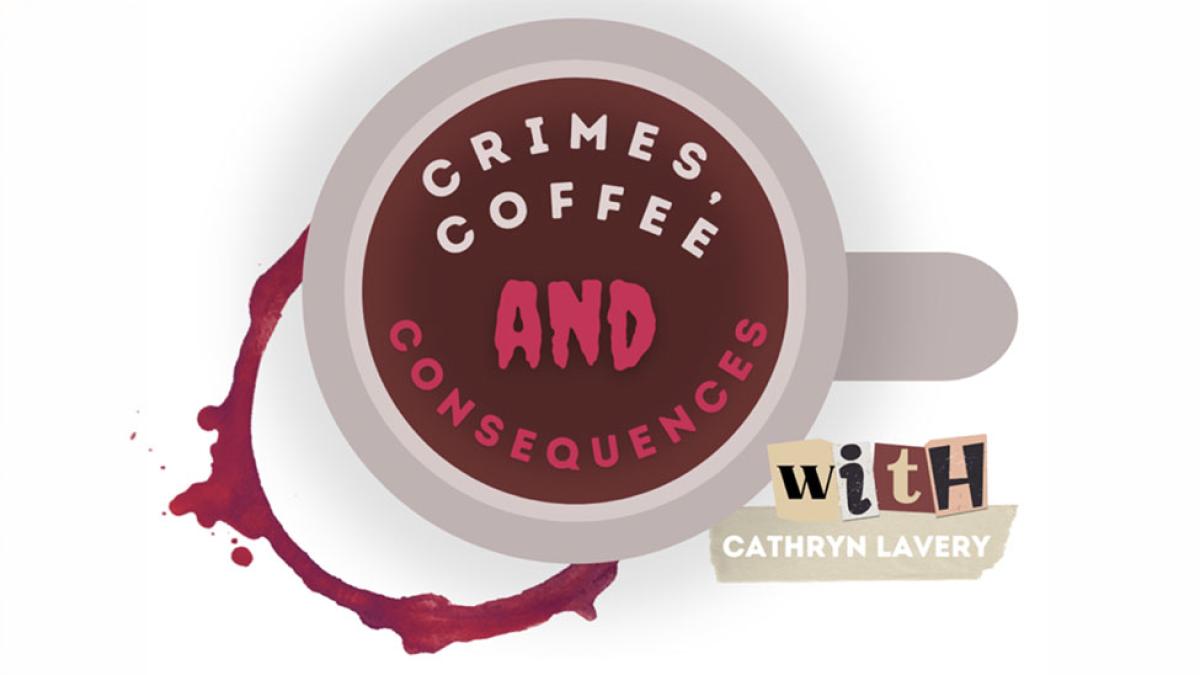
Professor of Criminal Justice and Security Cathryn Lavery (PhD’s) podcast, Crimes, Coffee, and Consequences, recently featured an episode entitled “Intelligence-Led Policing,” in which she delved into the world of intelligence-led policing (ILP) with two distinguished experts in the field: David T. Mulcahy and James McMorrow.
This episode explored how intelligence-led approaches shape modern criminal justice strategies, from predictive analytics to proactive crime prevention. Mulcahy, an adjunct professor of criminal justice at Pace and supervisory officer at United States Probation for the Southern District of New York, shared his insights on how data-driven strategies enhance law enforcement effectiveness. McMorrow, founder of McMorrow Investigations and Consulting, brought his extensive investigative experience to the conversation, discussing how ILP is applied in real-world policing and private-sector investigations.
It is one of many engaging episodes on Lavery’s podcast, available on Spotify and other major streaming platforms, through which she blends in-depth analysis and compelling storytelling alongside expert guests—from law enforcement professionals and legal scholars to policymakers and activists. Whether discussing notorious criminal cases, emerging trends in law enforcement, or the consequences of crime on society, in Crimes, Coffee, and Consequences, Lavery dives into the complexities of the criminal justice system, exploring high-profile cases, criminal behavior, and policy implications.
Listen to the “Intelligence-Led Policing” episode on Spotify.
Press Release: Pace University awarded grant from Verizon to Expand Telecommunications Workforce Training
Pace University and Verizon are launching a new online, no-cost, self-paced training program designed to educate the next generation of telecommunications technicians through a $700,000 workforce development grant. This initiative addresses the growing demand for skilled professionals in the field while offering flexible training opportunities for individuals interested in pursuing careers in the telecommunications industry.
New online program to prepare workforce for high-demand telecommunications careers

Pace University and Verizon are launching a new online, no-cost, self-paced training program designed to educate the next generation of telecommunications technicians through a $700,000 workforce development grant. This initiative addresses the growing demand for skilled professionals in the field while offering flexible training opportunities for individuals interested in pursuing careers in the telecommunications industry.
“We are excited to partner with Pace University to provide this invaluable training opportunity,” said Donna Epps, Verizon’s Chief Responsible Business Officer. “Today’s digital economy requires that individuals have the skills and confidence to be prepared for our rapidly changing workforce. Verizon is committed to helping individuals build those skills and unlock that confidence to turn career ambitions into reality.”
With telecommunications infrastructure rapidly expanding, the need for highly trained technicians has never been greater. The partnership and grant support the creation of a comprehensive and accessible training program, equipping students with the essential technical and human skills needed to excel in technician roles in the telecommunications industry.
Designed for flexibility, the program’s online, self-paced format allows students to learn on their own schedules while balancing work, family, and other commitments. Interactive modules and digital media instruction will offer hands-on learning experiences, ensuring participants gain the practical knowledge needed for success in the technician field.
Pace University’s innovative approach to workforce training will not only help bridge the telecommunications skills gap but also serve as a scalable model for addressing critical industry needs.
“We are thrilled to be the recipient of this generous grant and look forward to collaborating with Verizon,” said Shawn O'Riley, Vice President of Professional Education, Interdisciplinary and Special Programs at Pace University. “This program is an exciting step forward in our mission to provide cutting-edge education and training that meets the needs of our community within the telecommunications industry.”
To enroll today or learn more, visit the Verizon Technician Training Program, which is open to all U.S. residents aged 17 or older.
About Verizon
Verizon Communications Inc. (NYSE, Nasdaq: VZ) powers and empowers how its millions of customers live, work and play, delivering on their demand for mobility, reliable network connectivity and security. Headquartered in New York City, serving countries worldwide and nearly all of the Fortune 500, Verizon generated revenues of $134.8 billion in 2024. Verizon’s world-class team never stops innovating to meet customers where they are today and equip them for the needs of tomorrow. For more, visit Verizon or find a retail location at Verizon Stores.
About Pace University
Since 1906, Pace University has been transforming the lives of its diverse students—academically, professionally, and socioeconomically. With campuses in New York City and Westchester County, Pace offers bachelor, master, and doctoral degree programs to 13,600 students in its College of Health Professions, Dyson College of Arts and Sciences, Elisabeth Haub School of Law, Lubin School of Business, Sands College of Performing Arts, School of Education, and Seidenberg School of Computer Science and Information Systems.
Economic Data, Decisions, and Drive: Q+A with Shaniah James
A go-getter at heart, Shaniah James '26, has excelled in research, student competitions, and internships—all while pursuing a combined BA/MS degree and setting her sights on a future in economic policy and market analysis. Learn more about her journey and advice for fellow students.
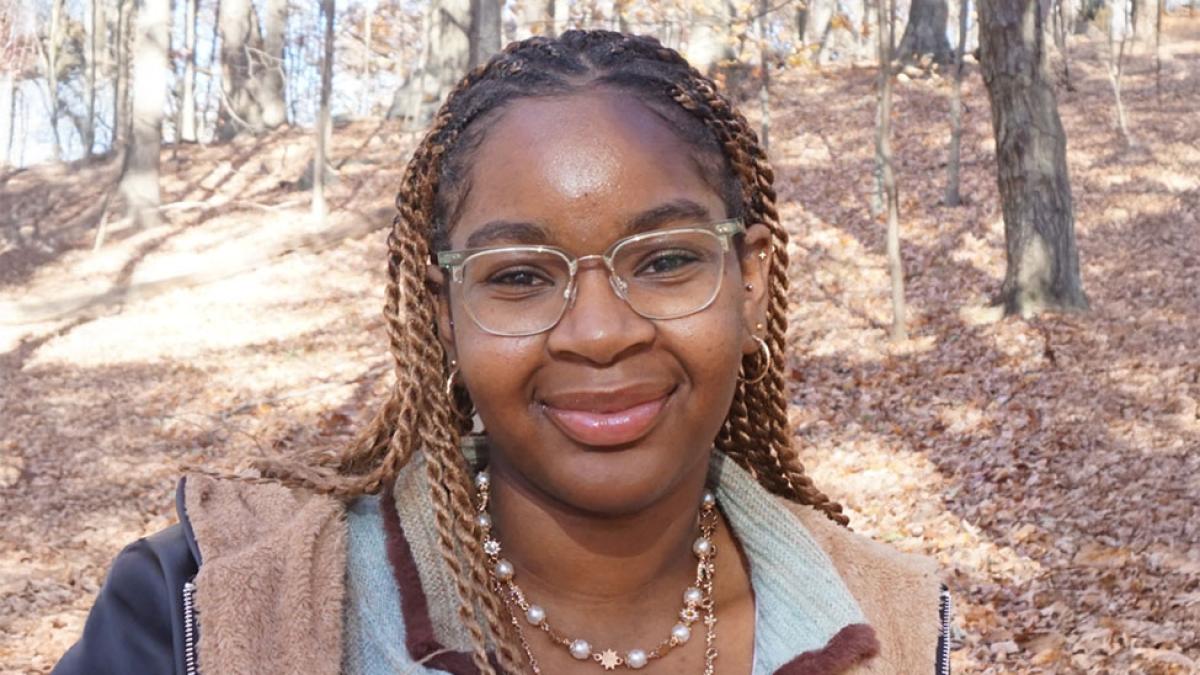
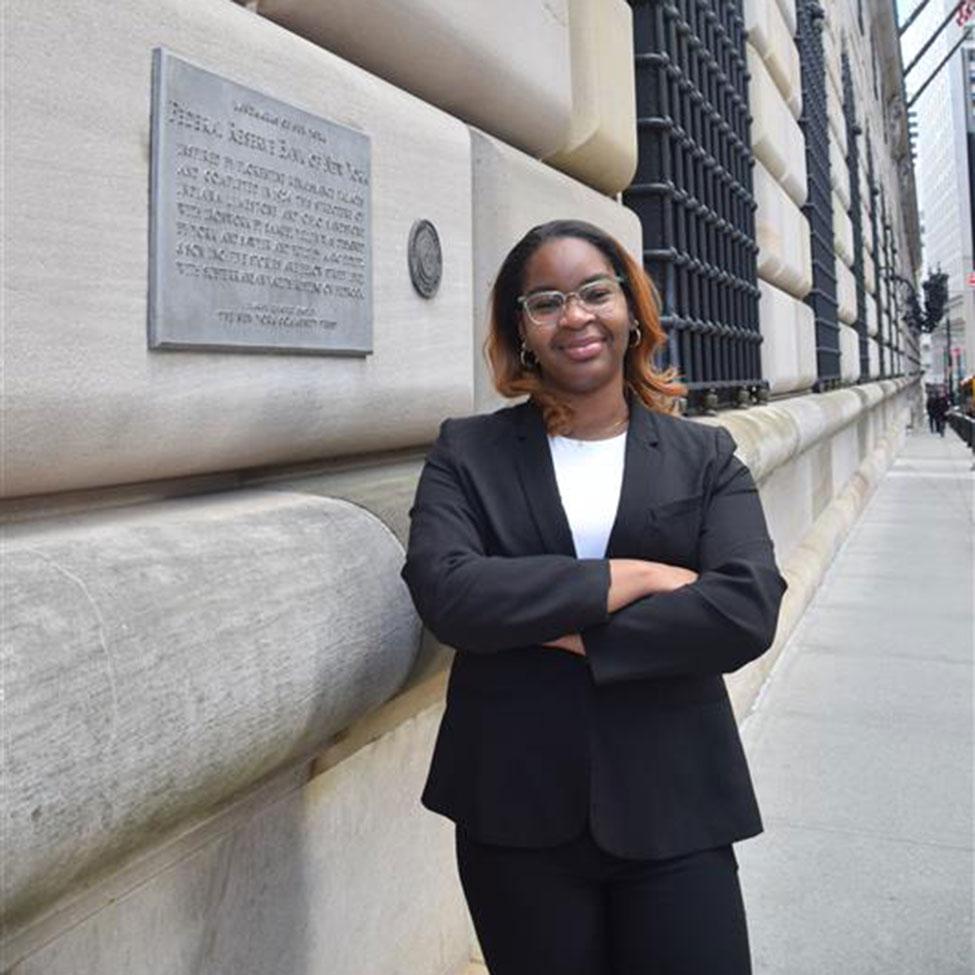
Shaniah James
Class of 2026
BA in Economics/MS in Applied Quantitative Economic Analysis and Policy
Why did you choose to pursue economics as a course of study?
When I started at Pace, I was a finance major, but that changed during my first semester when I took Principles of Economics: Macroeconomics with Professor Anna Shostya, PhD. That class introduced me to economics in a way that immediately drew me in, and I found myself deeply engaged and excited to learn more. What was so appealing was the behavioral aspect of economics, as I became fascinated by how people make decisions in different economic situations and the reasoning behind their behaviors. This made economics feel both analytical and dynamic. With Professor Shostya’s encouragement, I made the decision to switch my major to economics, and I haven’t looked back since.
Why did you choose to enroll in the BA in Economics/MS in Applied Quantitative Economic Analysis and Policy combined degree program at Pace?
I’ve always been a go-getter, and when I see an opportunity, I take it. When I learned about the combined degree program, I immediately started asking questions. The idea of earning both my bachelor’s and master’s degrees simultaneously was incredibly appealing, as it was a chance to challenge myself academically while accelerating my career prospects.
What have your experiences been like with the Economics department? What faculty have been instrumental in your academic journey?
My experience in the Economics department has been amazing. The faculty are not only knowledgeable but also incredibly supportive; they truly care about their students and want them to succeed. Because of this, it’s hard to single out just one professor who has been instrumental in my academic journey. Each faculty member I’ve learned from has played a meaningful role in shaping my experience and growth as an economics student.
I’ve always been a go-getter, and when I see an opportunity, I take it. The idea of earning both my bachelor’s and master’s degrees simultaneously was incredibly appealing, as it was a chance to challenge myself academically while accelerating my career prospects.
What student activities have you been involved in?
One of the biggest opportunities I have been given thus far is being part of the Federal Reserve Challenge team at Pace. I have met so many incredible people while being on this team, and the recent achievements have made me nothing sort of proud of everyone on our team.
I have also had the amazing opportunity to take part in the Society of Fellows, where I presented research on factors that contributed to the global declining birthrates in 2021. I worked on this project in my Quantitative Analysis and Forecasting class with Professor Sam Baruch. It was first time I conducted such in-depth research and it was such a rewarding experience. I also had the opportunity to present my research at the Federal Reserve Bank of Cleveland's 2024 Economic Scholars Program Conference. I enjoyed presenting my work and received so much insightful feedback. It was great to engage with fellow students and see their presentations as well.
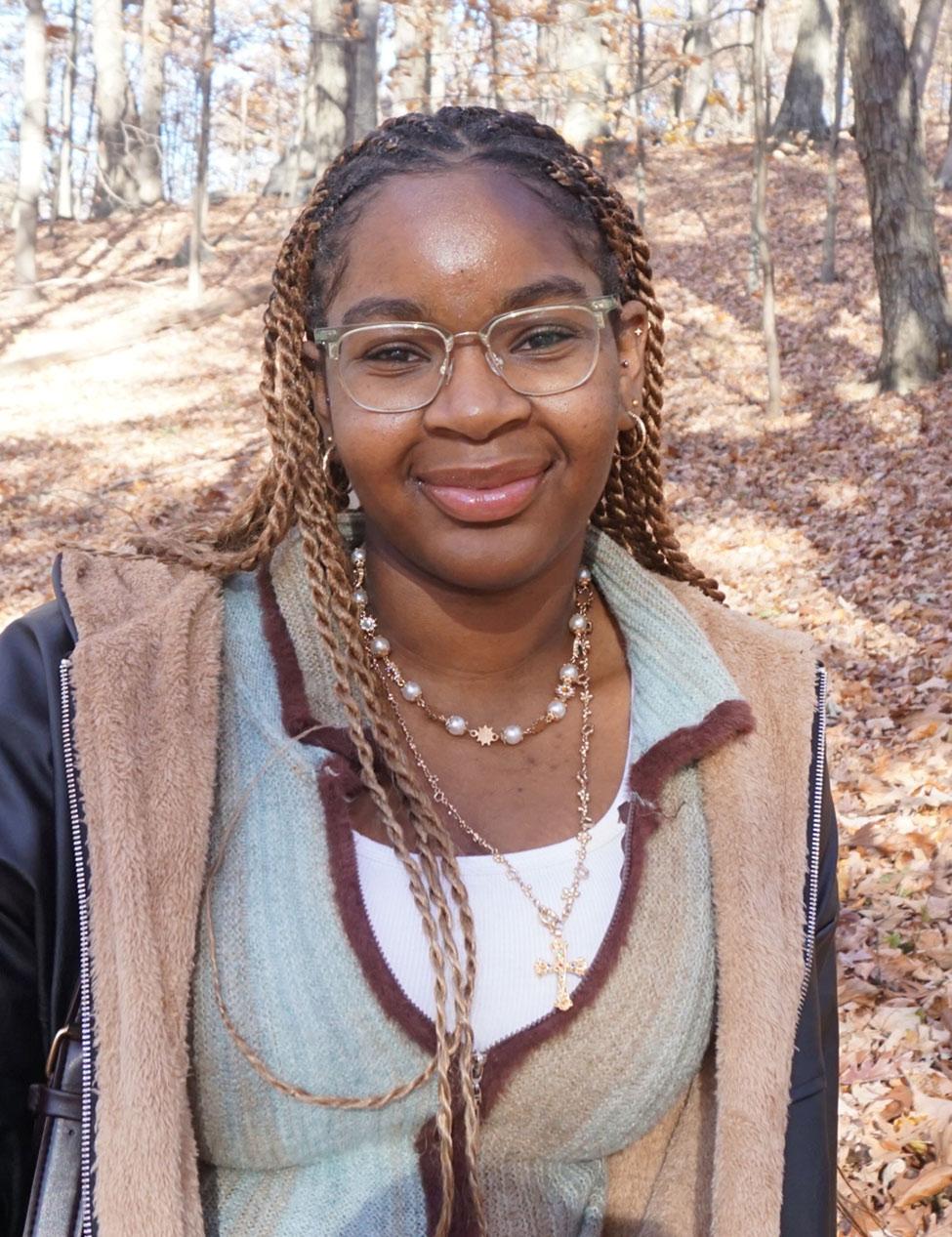
What internships have you had?
Last summer, I was an investment intern at Pharmakon Advisors, an opportunity I learned about through Career Services. It was incredible to work with a small but highly experienced and welcoming team, and what I appreciated most was the learning-focused environment, where I was encouraged to ask questions. For my first internship, it was an amazing experience, and I walked away with valuable skills that will serve me well in the future.
What are your career goals/what would you like to do upon graduation?
After graduation, I aspire to work in the private sector, focusing primarily on market research, data analysis, and economic forecasting. Additionally, I would love the opportunity to work at the Federal Reserve Bank, where I could contribute to economic research, policy analysis, and financial stability efforts. Ultimately, I plan to pursue a PhD in economics, and am particularly drawn to areas such as labor economics, and macroeconomics.
What advice would you like to give to our current students?
Take chances. Don’t let fear or self-doubt hold you back from pursuing opportunities. It’s easy to hesitate, but you never know what doors you might be closing on yourself if you don’t take risks. Some of the best opportunities come from simply putting yourself out there.
Press Release: Pace University Launches Center for Global Health
Pace University recently announced the launch of the Center for Global Health, an initiative focused on chronic respiratory diseases (CRDs) and other communicable and non-communicable diseases in urban environments through research, advocacy, and education.

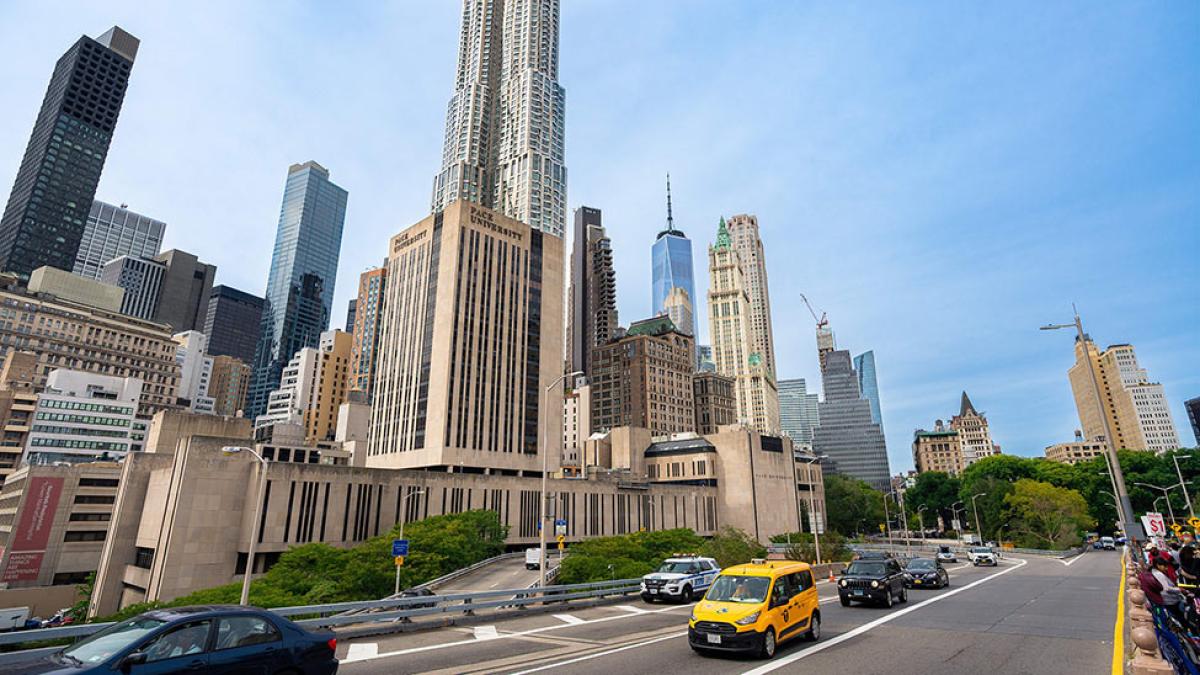
New initiative will focus on chronic respiratory diseases in urban environments
Pace University recently announced the launch of the Center for Global Health, an initiative focused on chronic respiratory diseases (CRDs) and other communicable and non-communicable diseases in urban environments through research, advocacy, and education.
CRDs affect more than half a billion people worldwide, contributing to over 3.5 million deaths annually—yet they remain under-recognized in global health discussions. The Center for Global Health will address CRDs by supporting interdisciplinary research, increasing media engagement, and advancing policy advocacy.
Led by José Luis Castro ’88, World Health Organization (WHO) director-general special envoy for chronic respiratory diseases, the center will bring together experts across disciplines to drive meaningful change.
"Chronic respiratory diseases disproportionately impact vulnerable populations, yet they remain largely overlooked in health policy," Castro said. "Through research and advocacy, the Center for Global Health will elevate this issue on the global stage while working with communities to develop sustainable solutions."
The center will also be supported by Sonia Suchday, Ph.D., director of research and graduate education, who will oversee operations and ensure its integration into Pace’s academic and research initiatives.
“This initiative will allow us to address the intersection of health, environment, and social determinants in a meaningful way,” Suchday said. “By fostering interdisciplinary collaboration, we can generate research that leads to actionable solutions for respiratory health challenges in urban settings. The center will also focus on other communicable and non-communicable diseases that are on the rise all over the world.”
With a strong foundation in psychology, biology, environmental sciences, law, health professions, and public health policy, Pace University is uniquely positioned to take a leadership role in addressing this global health challenge. Faculty and students will work together to tackle critical issues affecting communities in New York City and beyond, focusing on conditions such as asthma and chronic obstructive pulmonary disease (COPD) and other chronic conditions.
“The Center for Global Health will provide new opportunities for our students and faculty to contribute to vital research and policy initiatives,” said Jonathan H. Hill, DPS, interim provost and executive vice president for academic affairs of Pace University. “By addressing chronic respiratory diseases and other chronic diseases at both the local and global levels, we are reinforcing Pace’s commitment to innovation and public impact.”
The Center for Global Health aims to transform how CRDs are understood, reported, and addressed, ensuring these conditions receive the attention they deserve. In fact, a key priority is shifting the narrative through increased media coverage and public awareness.
In addition to raising awareness, the center will play a critical role in policy advocacy, offering expert guidance to legislative and parliamentary health committees to help integrate CRDs into national and global health strategies. In collaboration with WHO and other partners, it will provide research-backed solutions to reduce the impact of respiratory diseases on vulnerable populations.
Pace’s deep ties to the New York City community will enable meaningful engagement with local organizations, health care providers, and at-risk populations. The center will also provide hands-on opportunities for students, including research assistantships, internships, and participation in high-level policy discussions, preparing the next generation of public health leaders to tackle some of the most pressing global health challenges of our time.
As Pace University continues to expand its impact, the Center for Global Health represents a significant milestone in the institution’s commitment to research, education, and community engagement.
About Pace University
Since 1906, Pace University has been transforming the lives of its diverse students—academically, professionally, and socioeconomically. With campuses in New York City and Westchester County, Pace offers bachelor, master, and doctoral degree programs to 13,600 students in its College of Health Professions, Dyson College of Arts and Sciences, Elisabeth Haub School of Law, Lubin School of Business, Sands College of Performing Arts, School of Education, and Seidenberg School of Computer Science and Information Systems.
Aissatou Gningue ’23
Aissatou Gningue’23 is an associate in the Financial Operations division at KPMG. She works with major financial institutions managing their anti-money laundering (AML) investigations, as she is part of an ecosystem driven by collaboration, growth, innovation, and results that matter.
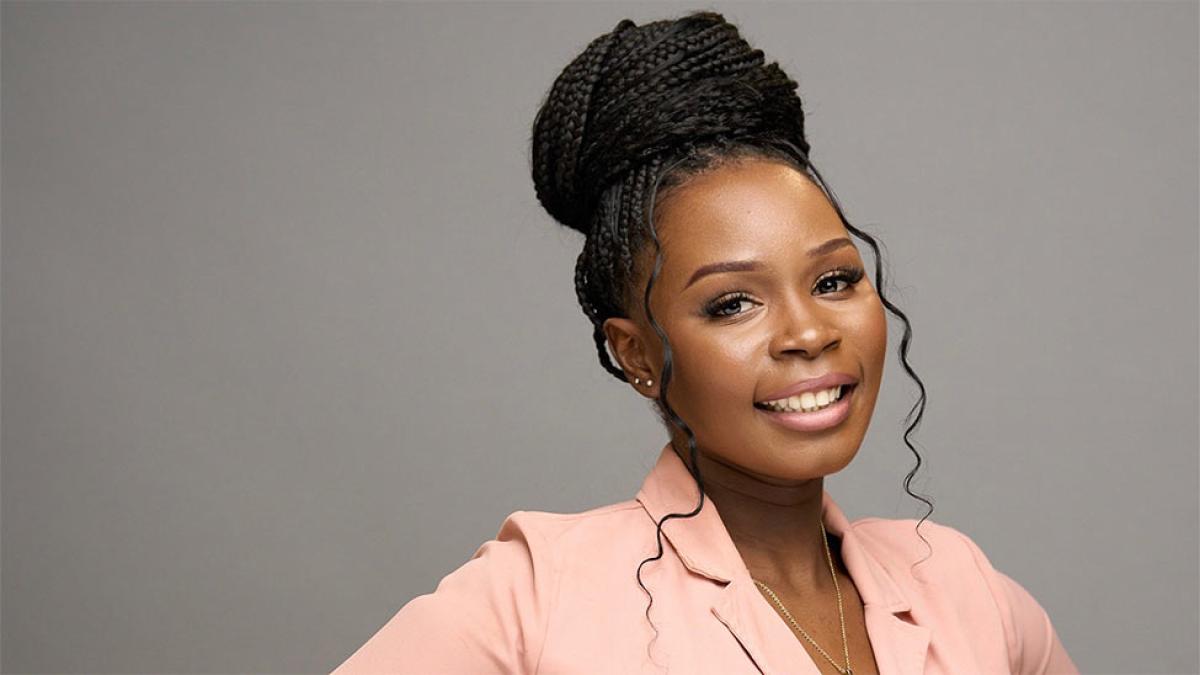

Aissatou Gningue’23 is an associate in the Financial Operations division at KPMG. She works with major financial institutions managing their anti-money laundering (AML) investigations, as she is part of an ecosystem driven by collaboration, growth, innovation, and results that matter.
Aissatou is excited to contribute her time and many talents to KPMG. She is no stranger to hard work; her drive and ambition are unparalleled.
At the age of ten, Aissatou moved from Senegal, West Africa to the United States. She excelled in her studies throughout junior high and high school. When she was accepted into Pace University, she was determined to set her sights high and achieve all of her academic and professional goals. Nothing would deter her. When seeking opportunities she didn’t take the word “no” for an answer. She says her “stubbornness” paid off in immeasurable ways. At Pace, Aissatou pursued two bachelor’s degrees and one master’s degree—she graduated from Pace at the age of 22. While at Pace she was often asked, “Are you sure you can do it?” Her response was always, “Of course I can!”
Aissatou’s journey at Pace offered her endless opportunities for growth personally, academically, and professionally. She learned to have the confidence to create opportunities where she couldn’t find any. “Pace’s motto, Opportunitas, extends beyond what has the university has to offer,” she says. “Opportunitas also means to be the change you want to see in the world, to be bold, and to reimagine the impossible.”
As the student speaker during the Lubin School of Business 2023 commencement ceremony, she delivered an inspirational speech and ended it with a Milton Berle quote: “If opportunity doesn’t knock, build a door.”
Aissatou continues to build doors and other pathways to opportunity. As she reflects on her time at Pace, she says: "The career I have built so far at KPMG has been exciting and fulfilling. I attribute my ability to thrive in this fast-paced environment where change happens sporadically to Pace allowing me to flourish and giving me a platform to pursue incredible opportunities. I was given the opportunity to start a club, be part of several executive boards, be an ambassador and mentor to my peers, and most importantly, pursue degrees that have proven to be most valuable. Pace gave me wings to soar and I've been flying ever since!”
Soaring and flying, though synonymous, demonstrate that opportunity serves as the launching pad to building a successful career. Aissatou’s Pace experience gave her the confidence to hit the ground running with skills that will ensure she remains in high demand.
From Wall Street to the Classroom—Shaping Future Business Leaders
Pace alumna and seasoned Wall Street executive Professor Birgit Elchoueri brings 25 years of corporate expertise into her dynamic teaching at the Lubin School of Business. She infuses real-world insights in strategic leadership, ethics, and disruptive technologies into every lesson. Her unique journey from finance to academia inspires future business leaders to excel in today’s evolving landscape.
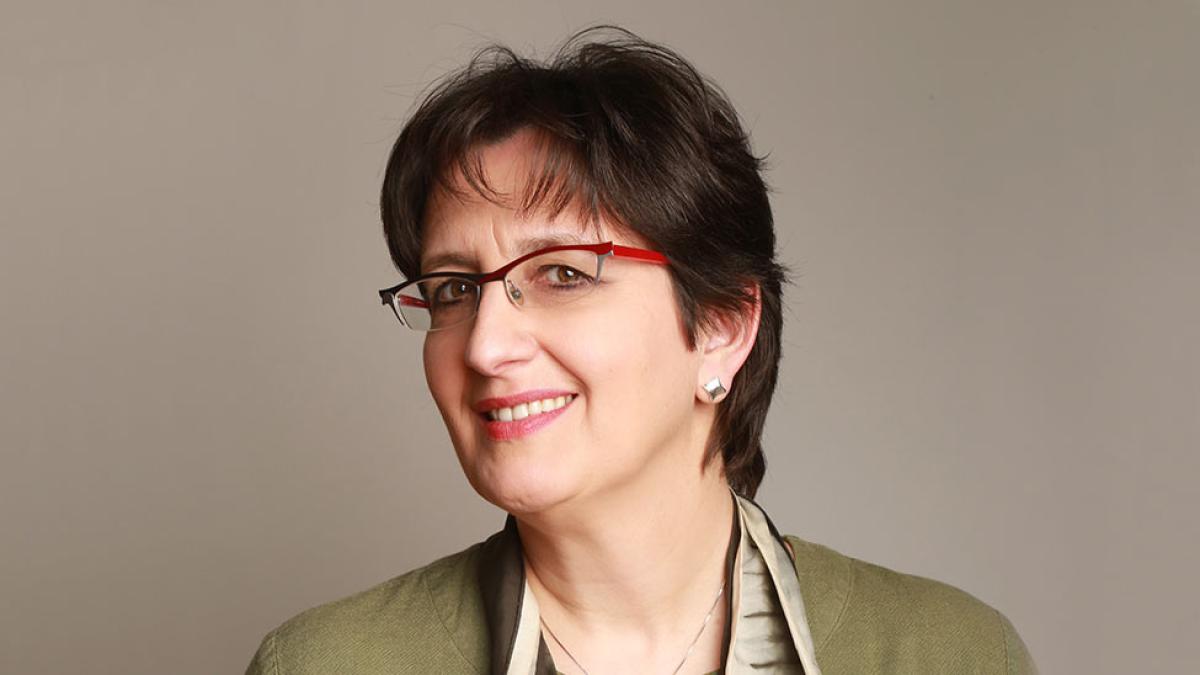
Faculty Spotlight: Professor Birgit Elchoueri, DPS
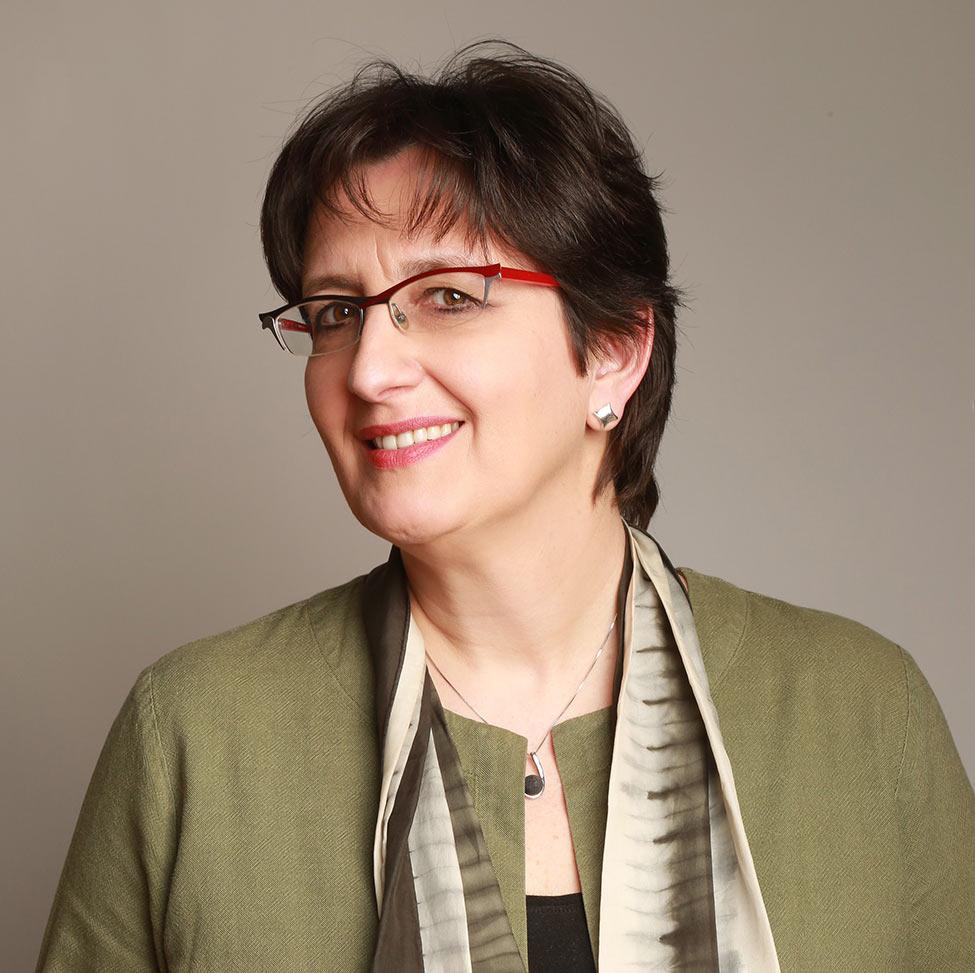
We had the opportunity to speak with Professor Birgit Elchoueri, DPS, from the Management and Management Science department at Pace University’s Lubin School of Business about her career in both academia and the corporate world.
A Pace alumna with three degrees from the university, she has been shaping the next generation of business leaders since 2019—first as an adjunct professor and now as a full-time clinical professor. With 25 years of experience as a Wall Street executive and a background in strategic leadership, business ethics, and disruptive technologies, she brings a wealth of real-world insight into her classroom.
Her teaching philosophy emphasizes critical thinking, teamwork, and practical application, preparing students to navigate today’s rapidly evolving business landscape with confidence.
Why Management Science?
Management science connects all business disciplines, offering leaders the tools they need to integrate and align these areas effectively. Teaching management is about preparing students to become effective leaders who can handle the complexities of today’s business world, which is constantly evolving. Management education fosters leadership skills, helping individuals lead teams, make strategic decisions, solve problems effectively, and create positive change.
Why Lubin/Pace?
Pace University is my alma mater, and I earned three degrees at Pace: BA in Language, Culture, and World Trade (Dyson), MBA in Finance and International Business (Lubin), and a DPS in Management (Lubin).
I received a rigorous and transformative education at Pace University, which not only shaped my professional journey but also instilled in me a strong sense of connection. This bond with Pace inspired me to return as a professor, eager to contribute to the institution that played such a pivotal role in my professional growth.
What are your research interests/areas?
My research interests encompass innovation and disruptive technologies, the behavioral aspects of strategic decision-making—particularly understanding why managers and business leaders make certain choices—and the crucial role of business ethics in a rapidly evolving business landscape influenced by AI and other technological trends.
Why is it important to advance research in this area or these areas?
Disruptive technologies are transforming industries at an unprecedented speed. Business ethics research is especially critical in an era where technologies present boundless opportunities to propel business growth, yet simultaneously pose the risk of unintended consequences that can have far-reaching and profound effects on societal well-being.
Ethical considerations in business are more important than ever, as organizations face increasing pressure from their stakeholders—including consumers, employees, investors, and governments—to operate responsibly. Research into business ethics, particularly in the context of new technologies, helps create frameworks for sustainable, transparent, and socially responsible practices.
My goal as an educator is to teach my students how to become effective leaders and strategic problem solvers. I am a strong believer in the power of teamwork—both in the workplace and in the classroom.
What do students learn in your classroom?
I strive to create a classroom atmosphere of intellectual stimulation, empathy, and trust, and I believe that learning is a joint effort between the educator and the student. My teaching method involves engaging students in active discussions that focus on analyzing strategic and ethical dilemmas that corporations face when responding to conflicting stakeholder needs and demands.
My goal as an educator is to teach my students how to become effective leaders and strategic problem solvers. I am a strong believer in the power of teamwork—both in the workplace and in the classroom. Team assignments and hands-on design thinking exercises focused on urgent real-world issues provide students with the opportunity to develop teamwork and leadership skills, as well as a sense of responsibility, as they practice different roles within their teams.
Discuss your professional path and its impact on how you teach and what you teach.
I began my corporate career as a business analyst at the New York branch of a major European bank, where I underwent rotational training in areas such as controlling, operations, corporate finance, and the trading floor. Later, I advanced to senior management positions, including director of the Global Markets division at several prominent Wall Street financial services firms, where I led quantitative teams and business analysts.
Over the past 15 years, I served as chief of staff to the CEO and as a member of the board of directors for the North American Corporate Insurance division of Allianz SE. In this capacity, I was entrusted with overseeing the CEO/board member office, spearheading the marketing and communications function, and managing the firm’s administration team. I ensured that critical path projects—including new product launches, portfolio run-offs, business process reengineering projects, organizational redesign initiatives, and cultural and technological transformations—were planned and executed effectively throughout the organization.
I connect my 25 years of professional experience as a manager and corporate executive on Wall Street with classroom teaching activities, and I encourage my students to learn with a growth mindset. When my students analyze real-world business challenges, they learn how to effectively deliver their ideas and innovative solutions and how to work collaboratively with other team members. In my teaching, I bridge management theory with real-world applications, drawing on my extensive corporate experience to bring practical examples into the classroom and make concepts more relatable and impactful for my students.
What are some challenges you had to overcome to get to where you are today?
The challenges I’ve navigated to reach where I am today have been both numerous and demanding. These included balancing family life with an intense work week of up to 80 hours, often accompanied by frequent business travel—all while executing strategic decisions, leading diverse teams, and pursuing advanced academic degrees.
Maintaining excellent grades to secure scholarships added another layer of pressure, yet these experiences not only tested my limits, but also sharpened my time management skills, resilience, and unwavering determination to excel in both my personal and professional life.
Which triumph are you most proud of?
In my role as an executive coach, I take great pride in mentoring employees I’ve hired at the early stages of their careers who go on to become successful executives. I’m also deeply fulfilled when C-suite executives I advise and coach achieve success through the strategies we’ve developed together.
What is the single most important lesson you’d like to impart to your students?
Embrace lifelong learning as your guiding principle. Approach knowledge with the curiosity of a sponge, absorbing insights from academic sources, internships, and real-world corporate experiences. Equally important is cultivating strong networks and relationships that support and enrich your journey.
What does #LubinLife mean to you?
#LubinLife strikes a perfect balance between academic excellence and practical implementation, nurturing an environment where critical thinking translates into tangible results in real-world settings.
Classes you have taught or are currently teaching:
- BUS 101: Contemporary Business Practice
- MGT 150: Managerial and Organizational Concepts
- MGT 490: Business Strategy
- DPS 805: Doctoral Foundation Seminar in Management